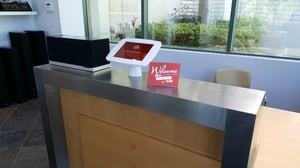Originally published by Apzo Media. Reposted with permission.
As more and more companies shift to remote work, the need for secure remote access to company networks and data becomes increasingly important.
Businesses need to walk the tight balance of ensuring that their employees have secure access to the tools and information they need to work remotely while also protecting sensitive company data from potential cyber threats.
While remote work has its benefits, such as increased flexibility and cost savings, it has also created new security challenges for businesses.
The COVID-19 pandemic has forced many businesses to adopt remote work as a new normal, with an estimated 50% of the workforce switching to remote-based employment, according to the U.S. bureau of labor statistics.
Remote workers are more vulnerable to cyber-attacks and data breaches as they often use personal devices and unsecured networks to access sensitive information. Working remotely also makes it difficult for businesses to control and monitor access to sensitive information and resources.
In addition, cashier-less stores and businesses are getting more popular as they reduce human exposure during pandemic times.
In this article, we will explore some of the ways remote workers and businesses have started implementing interesting security measures to make both businesses and remote employees feel safe.
1. Using Sign-in Software
 Visitor sign-in software programs are not just effective during times when social distancing is needed, but they also help move the world in a more efficient direction.
Visitor sign-in software programs are not just effective during times when social distancing is needed, but they also help move the world in a more efficient direction.
Some time ago, Amazon opened a grocery store where customers could walk in, pick up products, and leave the store with zero interaction with any human employees. Some may see this experience as a little creepy, but it’s pretty obvious that automation is the way of the future.
While you may not be opening your own Amazon Go store anytime soon, you can probably simulate this seamless experience for your customers with a modern
sign-in visitor app. These software packages effectively replace the role of a full-time receptionist, which can be very cost effective for most businesses.
Such options create a smooth experience for visitors or customers, and an experience that works through a tablet kiosk or via the customer’s own smartphone can be key in improving work productivity and safety.
2. Securing Connections With Virtual Private Networks (VPNs)
 VPNs, or virtual private networks, are an essential element for remote employees. They help businesses by providing a secure connection for remote workers to access the company’s network and resources.
VPNs, or virtual private networks, are an essential element for remote employees. They help businesses by providing a secure connection for remote workers to access the company’s network and resources.
This can include things like company files, internal websites, and other sensitive information. By using a VPN, remote workers can access this information as if they were physically in the office while also keeping their data and activity private and secure.
Additionally, VPNs can help to protect remote workers from hacking and other cyber threats by encrypting their internet connection and making it more difficult for attackers to intercept their data.
This can help to ensure that confidential business information remains secure even when employees are working remotely.
3. Paying Closer Attention to Access Control
Managing access control is an important aspect of securing sensitive information and resources in remote work environments. It involves controlling and monitoring who has access to sensitive information and resources and ensuring that only authorized users have access.
One way to manage access control is through the use of sign-in software and identity management solutions.
Sign-in software can provide an additional layer of security to the login process, such as two-factor authentication. It can also allow companies to control and monitor access to sensitive information and resources.
Identity management solutions, on the other hand, can help businesses manage and control access to different systems, applications, and resources. It can also provide a centralized view of who has access to what and where.
Companies can also set up access levels, or roles, for different users and regularly review and revoke access for users who no longer need it.
Access should only be granted to authorized users, but such a work culture requires proper discipline, and it takes effort to ensure that proper authentication and verification processes are in place.
Regularly reviewing and monitoring access logs is also an important part of managing access control. It allows companies to identify and address any suspicious activity or unauthorized access attempts.
Conclusion
While remote work has become a new normal for many businesses, it also poses new challenges for maintaining safety and security. To protect remote workers and sensitive information, companies need to implement robust security measures, such as sign-in software, VPNs, and firewalls.
Providing cybersecurity training for employees, encrypting sensitive data, and managing access control can all help mitigate the risks of cyber-attacks and data breaches.
With data security becoming a major priority for most companies, it becomes essential to implement security policies and procedures to regularly review and revoke access to sensitive information and resources.
By proactively implementing and maintaining security measures, businesses can protect their employees, sensitive information, and, ultimately, the success of their company.